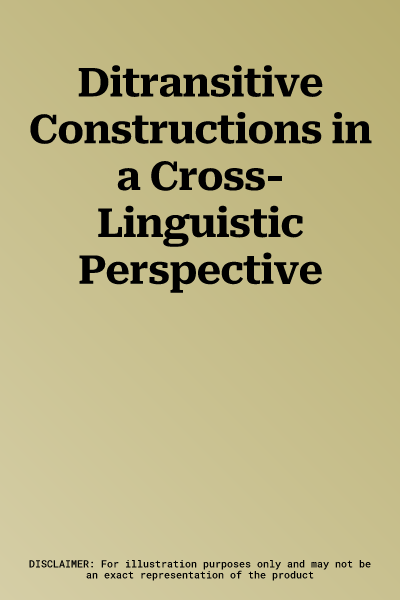This volume constitutes a contribution to the cross-linguistic study of
ditransitive constructions, arguably the most prominent construction in
the domain of trivalent verbs. The ditransitive construction is defined,
in accordance with typological practice, as a construction formed with
verbs like 'give', which take Recipient and Theme arguments in addition
to an Agent. The issue of ditransitive constructions has enjoyed
increased attention over the last decade and has been addressed in a
number of important studies. However, certain questions are yet to be
explored. The contributions in this volume touch upon a variety of
languages, provide rich new data on the distribution of ditransitive
constructions in lesser-researched languages, and substantiate the
findings with corpus data. Iranian languages are prominently represented
in the volume. These languages are particularly intriguing not only
because of the bewildering diversity in the ditransitive domain, but
also because they present a number of challenges for ditransitive
typology. This is due to the fact that these languages feature reduced
case systems as well as differential object marking, which obscures the
distinction between recipients and (prominent) patient and themes. The
volume also features studies dealing with a number of other languages
and language families, including modern Romance varieties and their
ancestor Latin, Ancient Greek, Tocharian, as well as non-Indo-European
languages (such as Mansi and Niger-Congo). Most of the studies take a
descriptive and/or comparative perspective, as appropriate when dealing
with endangered languages, but some contributions make use of other
approaches and methodologies, ranging from psycholinguistic-experimental
and corpus linguistic techniques to typological and theoretical
analyses. Recurrent themes in the present collection include factors
underlying the choice of construction in the ditransitive alternation,
the most important of which are lexical choices, information structure
and discourse prominence of theme and recipient argument.

